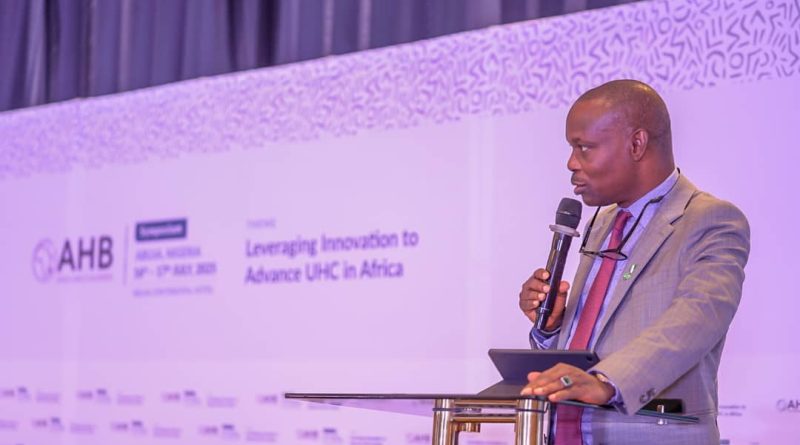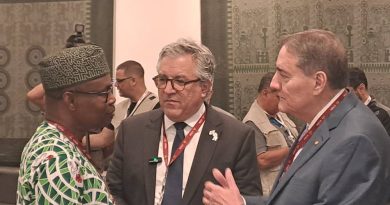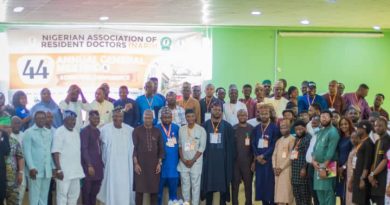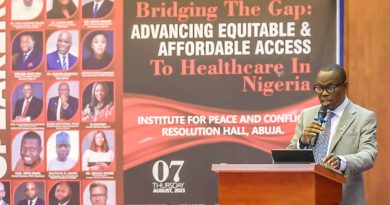Africa Needs Essential investments, International Cooperation To Achieve Universal Health Coverage- Salako
African countries need to commit to take key national actions, make essential investments, strengthen international cooperation and global solidarity at the highest political level in order to achieve Universal Health Coverage (UHC), This was stated by Dr. Iziaq Adekunle Salako, Nigeria’s Minister of State for Health and Social Welfare, on Wednesday, July 16th, 2023 at a symposium organized by the Africa Heath Business (AHB). The theme of the symposium. which was held at the Abuja Continental Hotel, is “Leveraging Innovation to Advance Universal Health Coverage”. According to Salako, Health is everything and nothing can be more important than a mechanism that is working to guarantee access to healthcare for everybody.
Universal Health Coverage (UHC) aims to ensure that all people can have access to the full range of quality health services they need, where and when they need them, without suffering financial hardship. It covers the full continuum of essential health services ranging from health promotion, prevention, treatment, rehabilitation and palliative care across the life course.
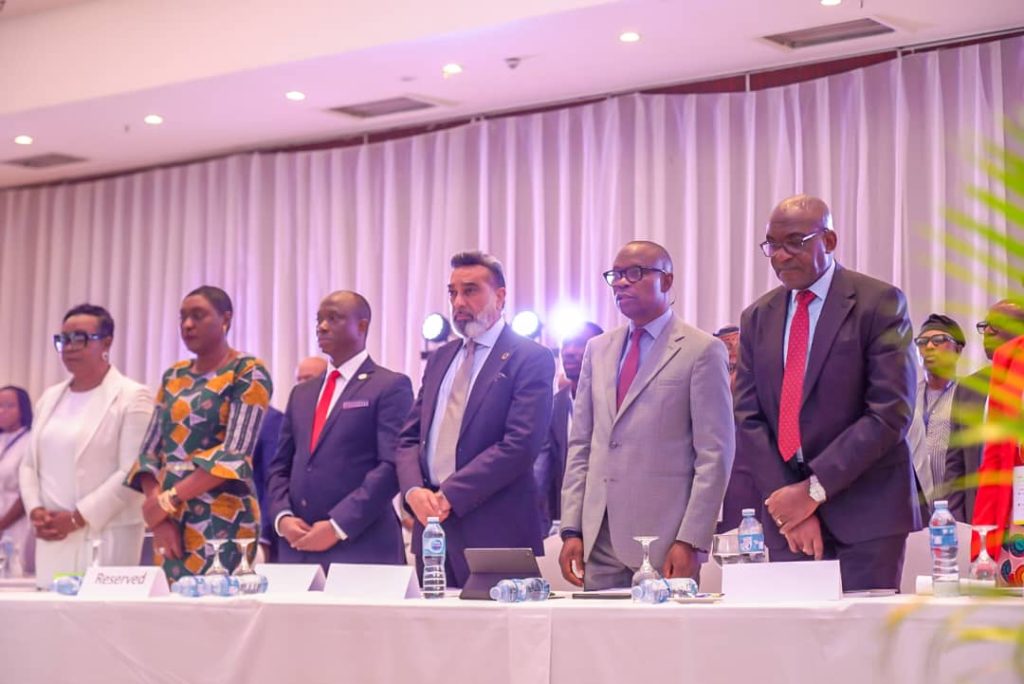
Salako said most African Countries have integrated UHC as a goal in their national health strategies/priorities. He however added that progress in translating these commitments into adequate domestic resources for health, effective development assistance, equitable and quality health services and increase financial protection have been quite slow.
“According to the World Health Organization in 2024, “over the past two decades, Africa has made slow progress towards achieving UCH, with the average Service Coverage Index rising from 23 in 2000 to 44 in 2021”, that is one point movement per annum. With only 5 years left to 2030, Africa will have to increase its pace by almost 10 folds in order to deliver quality and affordable healthcare services to everyone.
“While there is no one-size fits-all approach to achieving UHC, the WHO and the UN High-Level Declaration on UHC has made some general recommendations around reorientating health systems from designs around diseases to systems designed for people using a PHC approach. African countries will need to commit to take key national actions, make essential investments, strengthen international cooperation and global solidarity at the highest political level in order to achieve UHC. A 2021 joint publication by the European and African Parliamentary Forum on Population and Development, and the UHC 2030 International Health Partnership identified 6 Action Steps to achieve Universal Health Coverage. In each of these steps, itemised as lead, protect, legislate, advocate, invest and collaborate, new ideas, methods and products, that is innovation is a cross cutting enabler.
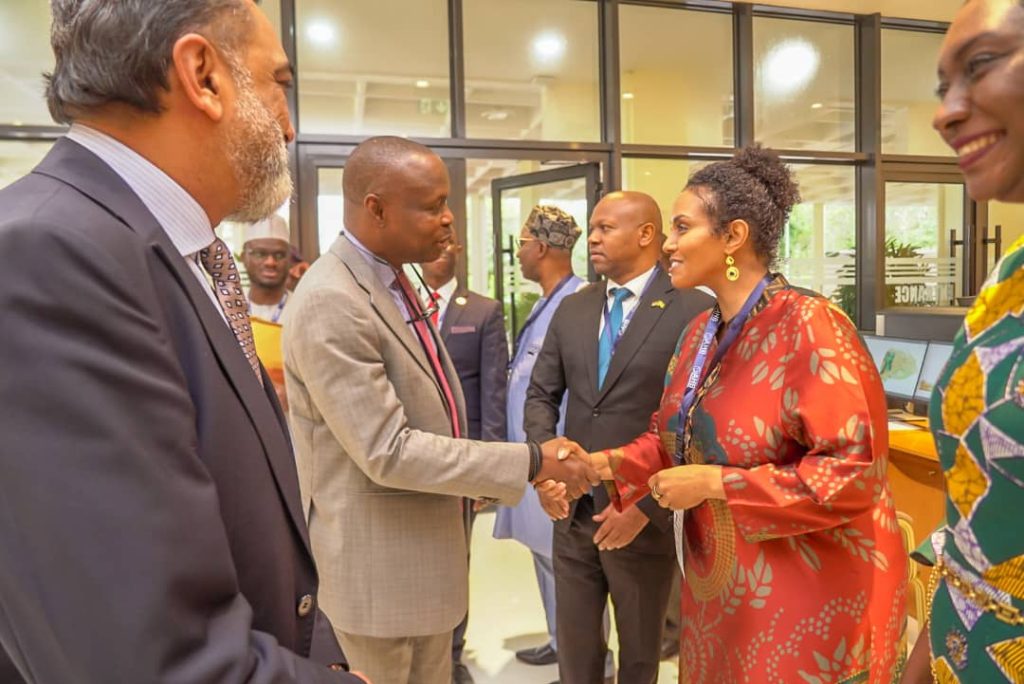
“Whether building a political leadership beyond health that elevate UHC to a social contract between the people and the leaders, creating a health system that leaves no one behind, and earns the people’s trust, enacting strong, enabling regulatory and legal environment responsive to people’s needs, mobilizing more and better investment or ensuring a multi stakeholders mechanism for engaging the whole of society, Africa must think and act creatively and innovatively if the 2030 UCH Agenda is to be realised.”
He said Nigeria’s commitment to ensuring equitable, affordable, and quality healthcare for all, even in the face of emerging threats like emerging and re-emerging diseases, climate change, and resource constraints is captured in the Health Sector Renewal Investment Initiative, the operationalization of the Renewed Hope Agenda of President Bola Ahmed Tinubu GCFR for the health sector.
“The Federal Ministry of Health and Social Welfare is making significant strides towards attaining UHC through initiatives such as the establishment of the National Health Insurance Authority (NHIA) Act of 2022 which makes health insurance mandatory for all citizens and legal residents. In addition, the National Health Act, 2014 which provides the fundamental legal framework for health service delivery in the country is being implemented more diligently. A key provision of the National Health Act is the setting aside of 1% of the consolidated revenue as Basic Healthcare Provision Fund to improve access to primary healthcare services for all Nigerians through a basic minimum package of health services.
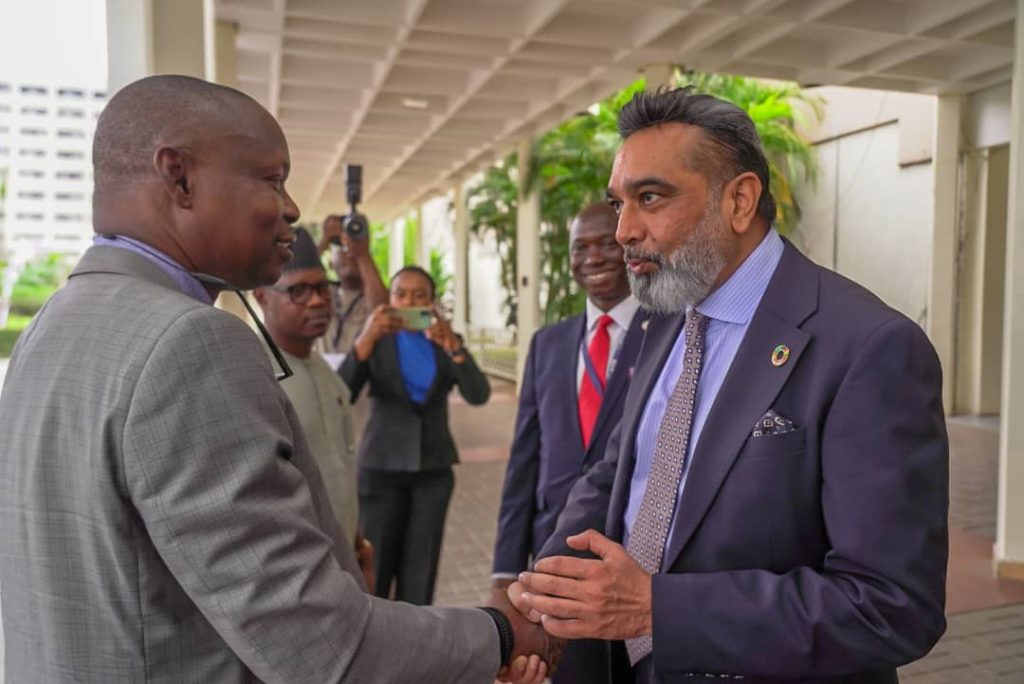
“Nigeria’s slow progress towards UHC has picked up in the last 2 years with the establishment of insurance agencies in all the 36 states of the Federation (plus Abuja), over 15% growth in the numbers of Nigerians covered by health insurance and a more robust and transparent implementation of the BHPF. The government has embarked on an ambitious PHCs revitalization agenda targetting the upgrade of 17,000 PHCs to level 2 by 2027. The focus is to ensure full national coverage of health insurance by 2030 and adequacy of functional PHCs so that citizens receive quality health care without facing any financial hardship, thereby preventing them from falling into poverty due to medical expenses.
“We are also implementing The Presidential Initiative for Unlocking the Healthcare Value to boost local manufacturing and availability of essential medicines and other health products in all health facilities in the country. The President also issued an executive order to eliminate tarrifs, excise duties and VAT on imported pharmaceutical inputs to enhance the affordability index of healthcare services in the country. These initiatives are being implemented using a Sector wide Approach (SWAP) to increase programmes integration, reduce fragmentation, improve transparency thereby maximizing coordination and cost benefits.”
Despite the above progress recorded, the Minister noted that Nigeria’s drive towards UHC is still heavily challenged ranging from under funding, sub-optimal health insurance subscription and high of pocket expenses, infrastructural deficit, inadequate human resources for health being worsened daily by by health workers migration, just to mention a few.
He said strengthening resource mobilization and sustainable financing for healthcare is one of the most persistent challenges to achieving UHC. This is because African health systems rely on out-of-pocket payments, pushing many families into poverty.
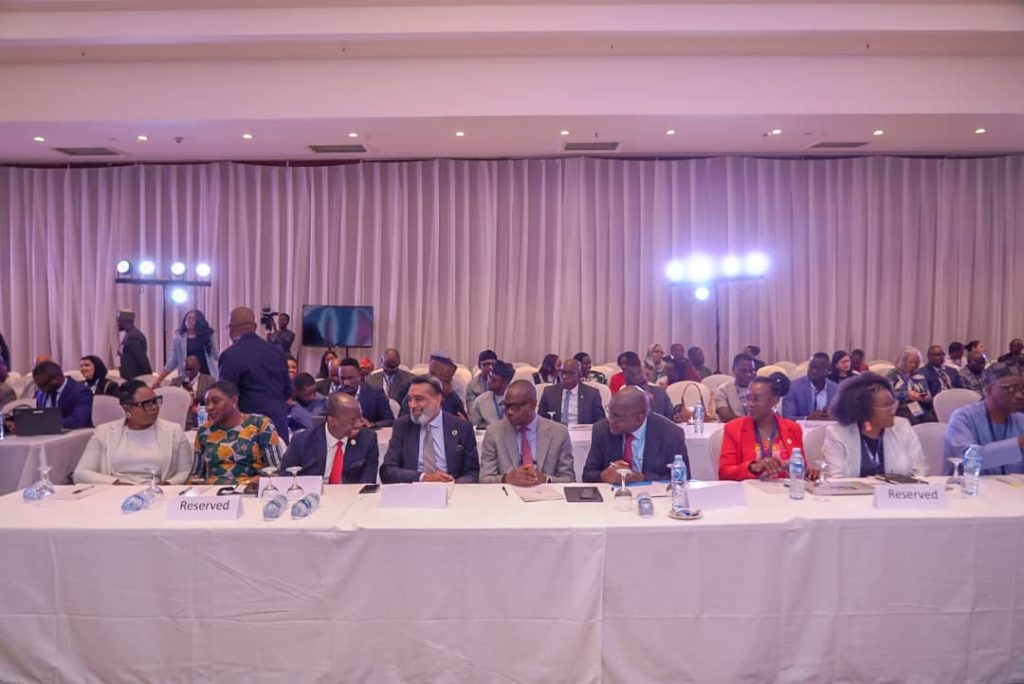
“African countries must rise to the challenge of increasing domestic resource mobilization for health by exploring innovative financing mechanisms. In Nigeria, we are working to improve budgetary allocations to health, exploring new funding streams, leveraging global partnerships such as the Global Fund and GAVI, strengthening public-private partnerships, while reducing dependency on external aid through homegrown solutions. But we must go further.
“Health must be seen as an investment, not a cost. To this end, we must create the enabling environments for private sector participation while ensuring accountability and equity in the use of public resources. I strongly believe the Africa Health Business Symposium offers an invaluable opportunity to galvanize investment from both public and private sources toward a shared goal. For us in Nigeria, as President Bola Ahmed Tinubu will always say, we are open for business and we look forward to this symposium galvanising more private sector investments in our health sector.
“Innovation is the engine that will drive us forward. From digital technologies and artificial intelligence to groundbreaking approaches in service delivery and financing, Africa has a unique opportunity to leapfrog traditional barriers. Nigeria is integrating digital health solutions such as telemedicine, electronic medical records (EMRs), and AI-driven diagnostics to expand access in rural areas, improve disease surveillance, and enhance health system efficiency. But this is only the beginning. Digital platforms, mobile health applications, telemedicine, and data-driven decision must become embedded in how we plan, deliver, and evaluate care. These innovations, when equitably deployed, can close the gap between urban and rural services, improve transparency, and build trust.
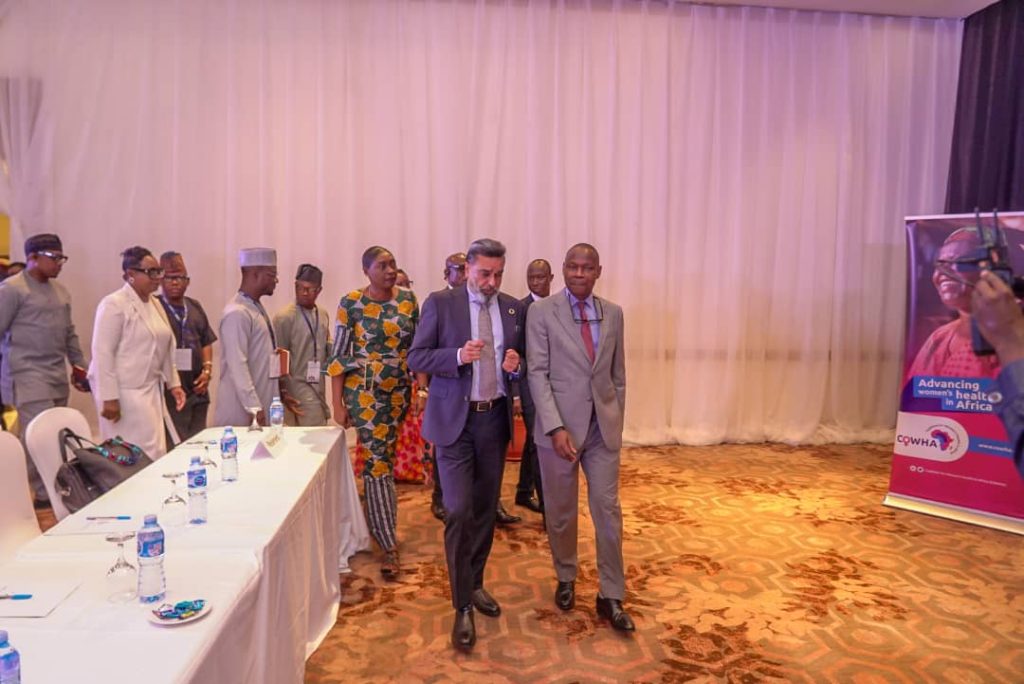
“Africa’s over-reliance on imported medicines and diagnostics is unsustainable. The COVID-19 pandemic acutely exposed the fragility of our health commodity supply chains and the danger of overdependence on external markets. To safeguard health security, Africa must scale up local production of pharmaceuticals, diagnostics, and vaccines.
As stated earlier, through the PVAC and other initiatives, Nigeria is committed to strengthening its pharmaceutical industry, supporting indigenous innovation, and ensuring that locally produced commodities meet international standards. We call on our continental partners to deepen collaboration in this area, so that Africa can build a resilient, self-sufficient health economy.
“Climate change is a health crisis multiplier and its health impacts are already being felt in various ways like rising cases of vector-borne diseases and disruptions in food and water security thereby exacerbating malnutrition, infectious diseases, and displacement. Combined with the ever-present threat of pandemics, these challenges demand a coordinated, multisectoral, and future-oriented response. Thus, we must invest in climate-resilient health systems, expand our emergency preparedness capacities, and strengthen cross-border cooperation.”

